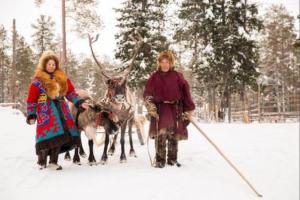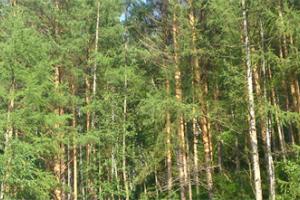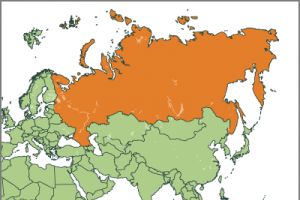Russia's Numto Nature Reserve in western Siberia contains a sacred lake, endangered cranes and valuable wetlands for the indigenous Nenet and Khanty peoples. Last year, the nature reserve's borders were redrawn by the regional government to make way for new drilling operations for the Russian oil company Surgutneftegas, forcing out indigenous groups.
Russia
Bulletin articles
4 September 2014
Bulletin articles
30 April 2013
In March 2013, the presidents of the so-called BRICS countries – Brazil, Russia, India, China and South Africa – met in Durban, South Africa. Surrounded by security barriers so that no one who would dare to protest could get near them, the presidents of these nations discussed a number of issues, including cooperation proposals.
One of the proposals most widely highlighted in coverage of the event was the creation of a BRICS development bank, with USD 50 billion in seed capital contributed in five equal parts by the bloc’s member countries.
Other information
8 July 2009
WRM information sheets on GE tree research
Bulletin articles
26 November 2004
On October 22, 2004 Russia ratified the Kyoto Protocol, the international agreement created to begin addressing the problem of global warming. Russia’s ratification of the Kyoto Protocol now gives the agreement a high enough level of participation by the countries most responsible for the world’s carbon emissions for the agreement to go into effect, even without the United States’ 25% of worldwide annual global carbon emissions.
Bulletin articles
7 September 2002
The uplands between the Yenisei and the Lena rivers are one of the last regions of unbroken boreal forest --"taiga"-- in Eurasia. This region is the homeland to Evenki, Ket, Sel’kup, Sakha, and Dolgan aboriginal hunters and herders. Although Cossack frontiersmen used the Yenisei, Lena, and Lower Tunguska rivers as their main route to subdue and integrate Eastern Siberia into the Russian Empire in the 17th Century, the central Siberian plateau escaped most of the dislocations of Russian and Soviet industrialism in the 19th and 20th Century.
Bulletin articles
15 April 2002
The Sixth Conference of the Parties of the Convention on Biological Diversity has concluded and it is difficult to say whether it was a success or a failure. "Mixed feelings" would perhaps best describe what many people attending the meeting felt, particularly regarding the issue of forests, which was one of the main items of the agenda.
The main products of the COP were the Ministerial Declaration and the adoption of a Programme of Work on Forest Biological Diversity.
Other information
16 October 2000
The International Institute for Applied Systems Analysis (IIASA), based in Laxenburg, Austria. carried out a detailed study of Russia's biosphere, which contains a fifth of the world's forests. Its report puts in question the whole idea of using carbon sinks as a means of "compensating" for CO2 emissions.




